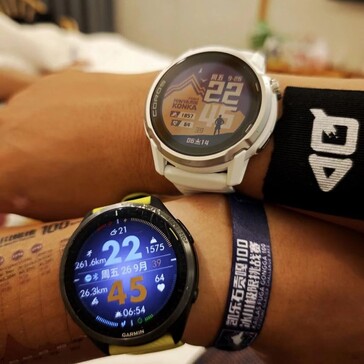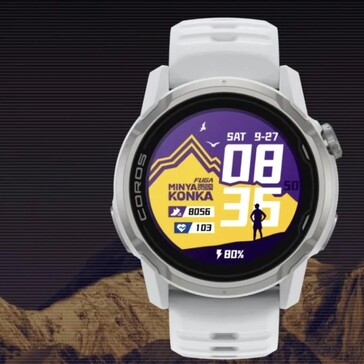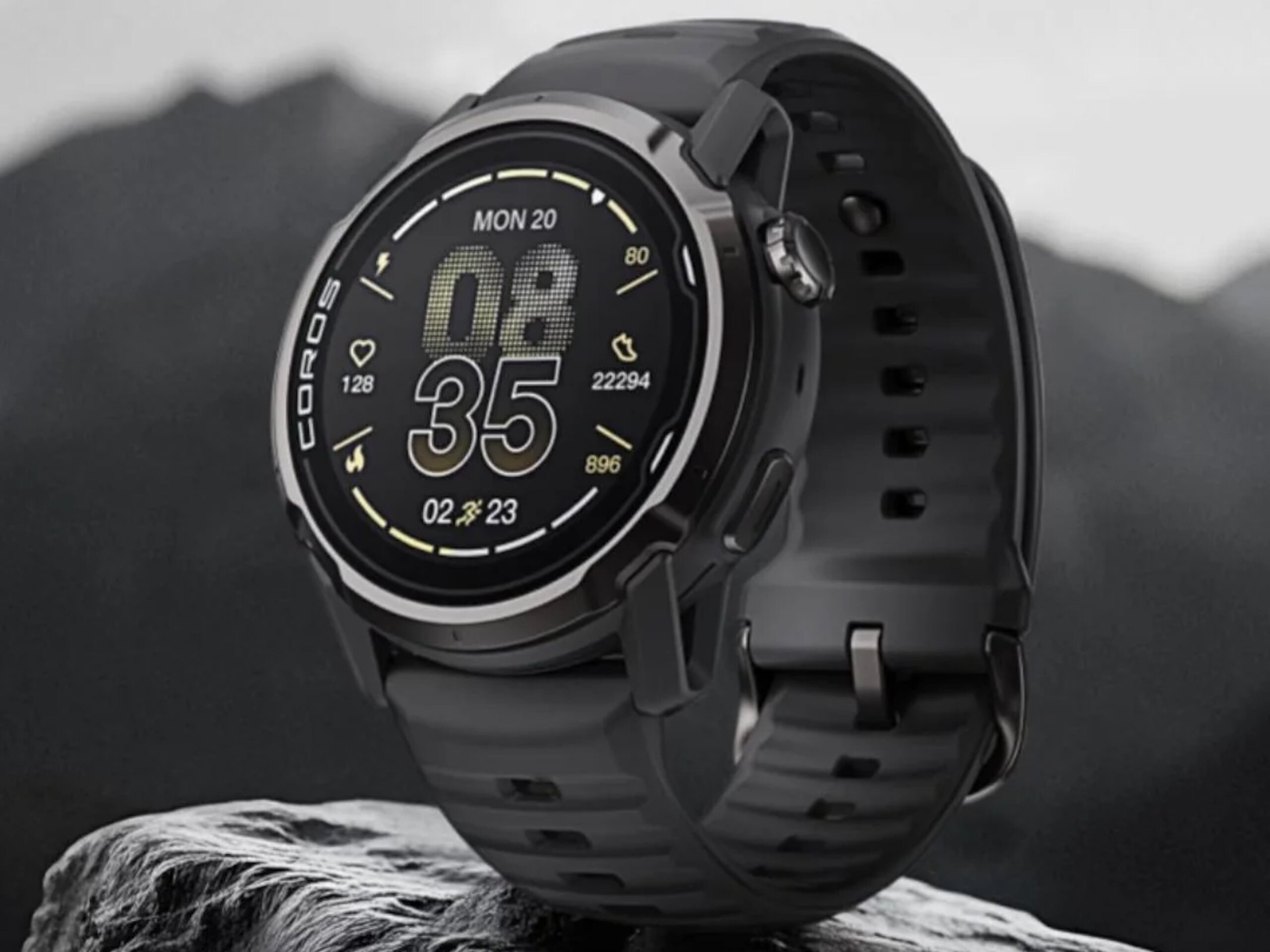Coros offers a wide range of smartwatches, especially for athletes, and has just officially announced a new smartwatch, the Apex 4 – at least for the Chinese market. The company has released a teaser image of the new model and announced two dates. The official launch of the product is scheduled for October 15, with sales starting on October 25.
The watch appears to already be in circulation, albeit in very limited quantities. Participants in the Kailas Fuga Gongga 100 Extreme Glacier Challenge Race, for example, were able to use the Coros Apex 4. One of the participants shared photos and also appears to be active on Reddit. There are also photos of the packaging and the wearable on a Chinese social network. The company has not yet released any information about the technical specifications, but various details about the technical features can already be deduced.
As a standard feature of sport smartwatches, a GNSS module is almost certain. The Kailas Fuga Gongga 100 Extreme Glacier Challenge Race is an ultramarathon, so the battery life is likely to be long. Moreover, there is a comparison image with the Forerunner 965 in which the display of the Coros Apex 4 appears significantly less brilliant, making it clear that Coros will continue to use a MIP (Memory-in-Pixel) display for the Apex 4 rather than an AMOLED display.
A MIP display is a reflective, energy-saving display technology in which each pixel has its own memory to display information, consuming power only when the image changes. This allows for good readability in bright sunlight and ultra-long battery life. though its refresh rates are slower than AMOLED screens, making it less suitable for video.



I have been active as a journalist for over 10 years, most of it in the field of technology. I worked for Tom’s Hardware and ComputerBase, among others, and have been working for Notebookcheck since 2017. My current focus is particularly on mini PCs and single-board computers such as the Raspberry Pi – so in other words, compact systems with a lot of potential. In addition, I have a soft spot for all kinds of wearables, especially smartwatches. My main profession is as a laboratory engineer, which is why neither scientific contexts nor the interpretation of complex measurements are foreign to me.

Growing up in regional Australia, I first became acquainted with computers in my early teens after a broken leg from a football (soccer) match temporarily condemned me to a predominately indoor lifestyle. Soon afterwards I was building my own systems. Now I live in Germany, having moved here in 2014, where I study philosophy and anthropology. I am particularly fascinated by how computer technology has fundamentally and dramatically reshaped human culture, and how it continues to do so.
